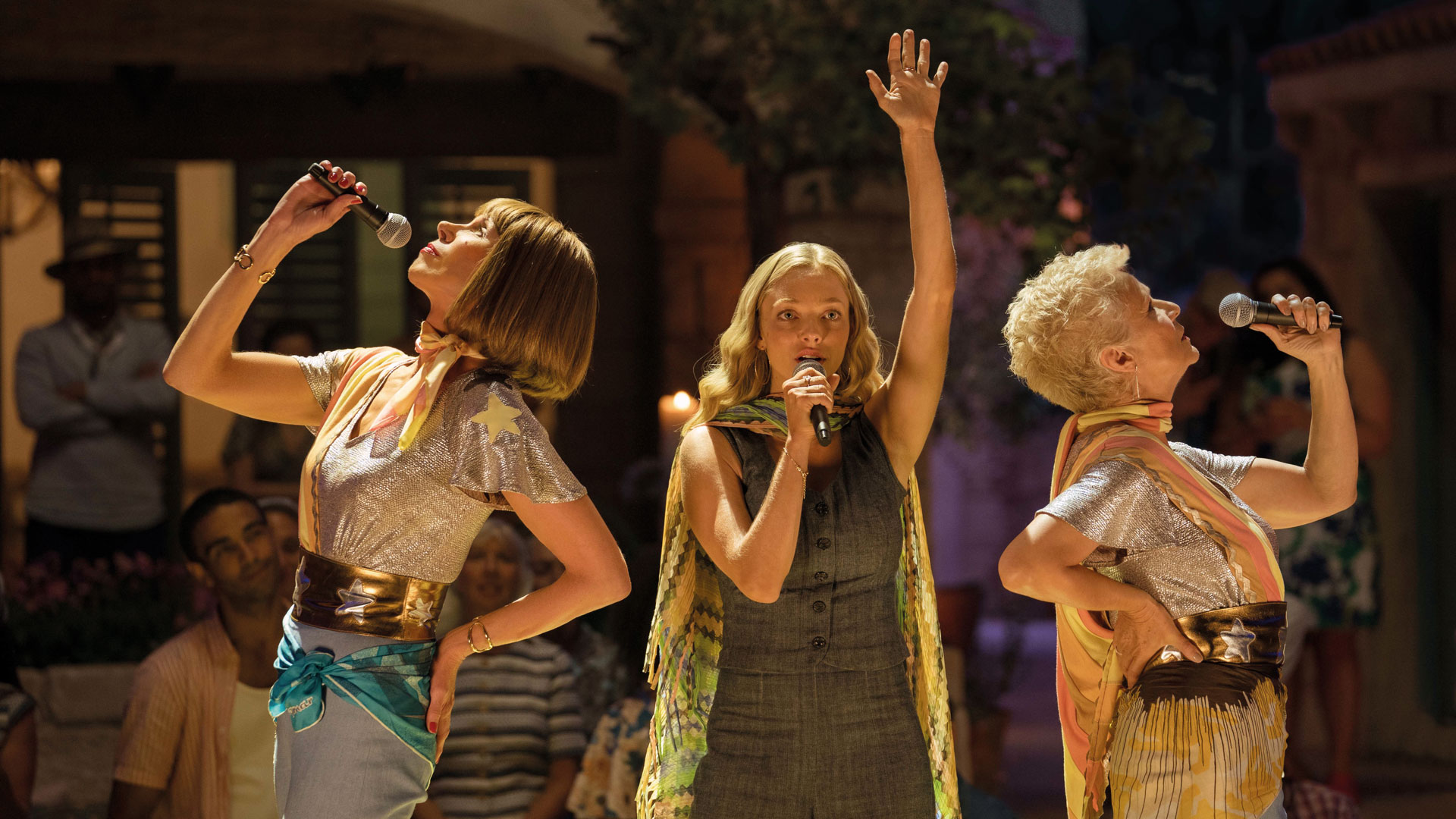The original Mamma Mia was the all-singing, all-dancing calm before the storm that followed. In 2008, politically, economically and culturally, everything changed. And a decade on, we are still living with the consequences. The financial crisis hit hard. By September, Lehman Brothers had collapsed; on one day in October, £90bn was wiped from the value of the British economy. This period gave birth to austerity and cuts to public services that are hitting now and will continue to impact our lives far into the future. Obama’s election at the end of the year brought hope to many, but also primed the political pendulum to swing harder in the opposite direction.
But one positive legacy of 2008 remains. That summer, the film version of the Abba jukebox musical Mamma Mia was released. It went on to become Britain’s biggest box office hits of that year. Seemingly constant repeats on ITV2 have tided us though tricky times over a decade torn by global turmoil, from Brexit and the fractures in Europe to war and the refugee crisis. Greece, which provided a paradise setting for Mamma Mia, became the country hit hardest, its economic troubles compounded by an influx of people fleeing terror in the Middle East and North Africa.
While the world gets darker and more unpredictable every day, the time is ripe for Mamma Mia’s return. Here We Go Again follows Amanda Seyfried as Sophie as she prepares to open her own island hotel. But the timeline is split and we see how and why she acquired multiple potential fathers.
Cinema has become dominated by sci-fi and superheroes, squeezing out audiences seeking escapism of a sunnier kind. But what impact does a film or two really have on society? Well, the world could definitely do with an injection of joy, love and laughter. As Abba rhetorically puts it, ‘Without a song or a dance what are we?’
Mamma Mia 2: Here We Go Again is out in cinemas on July 20.









